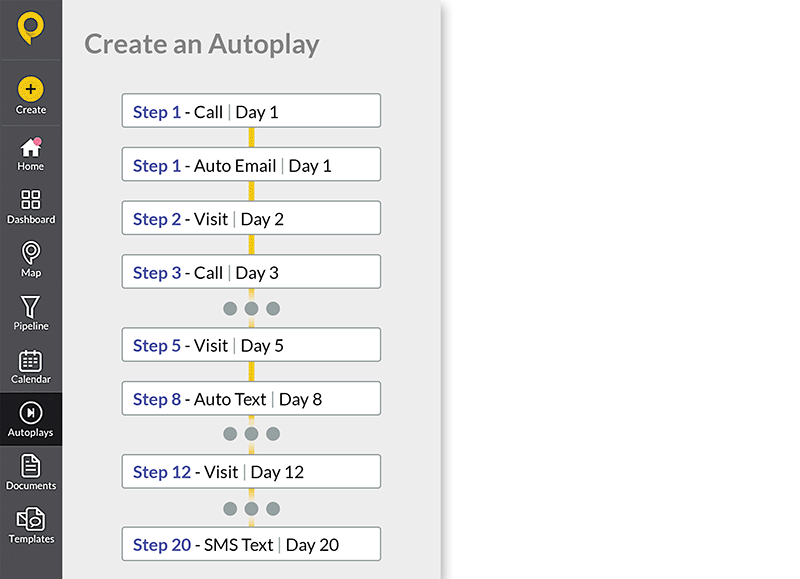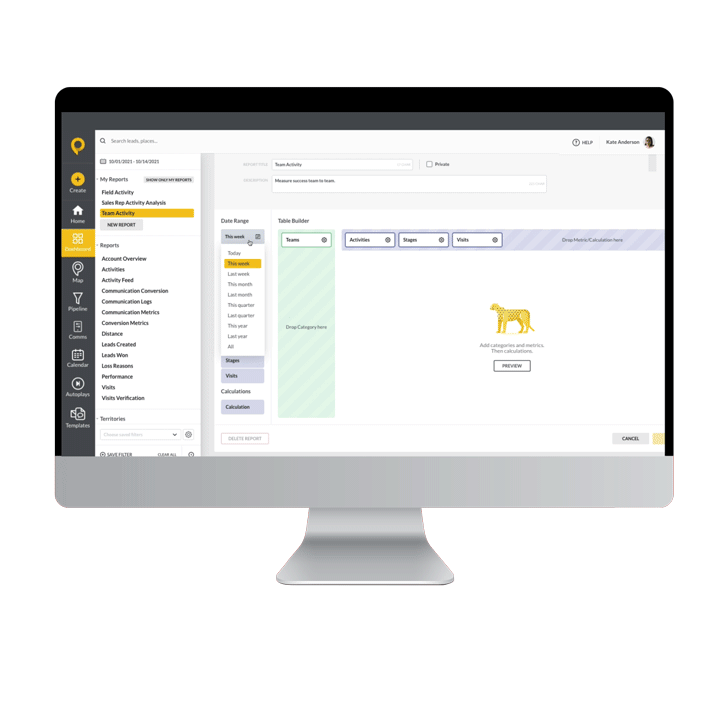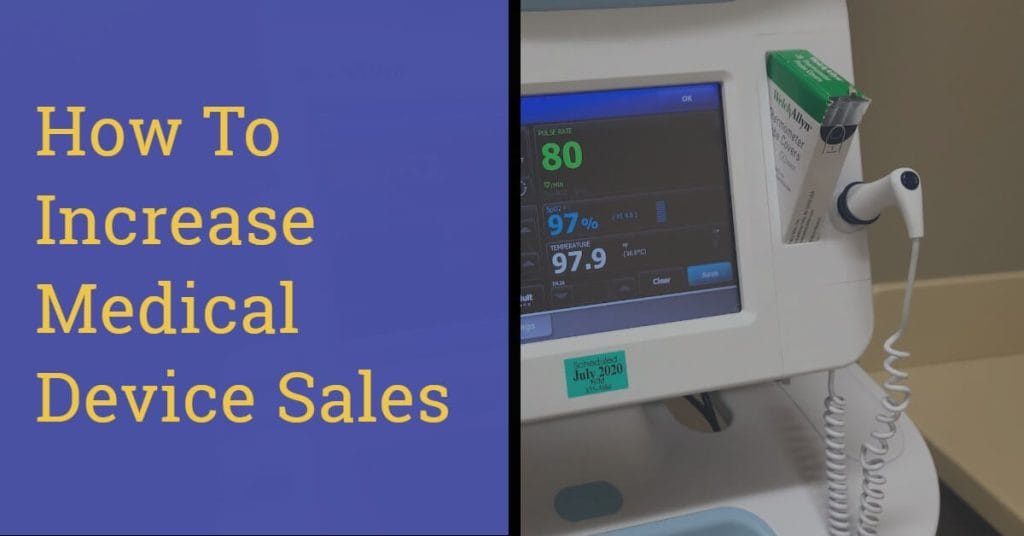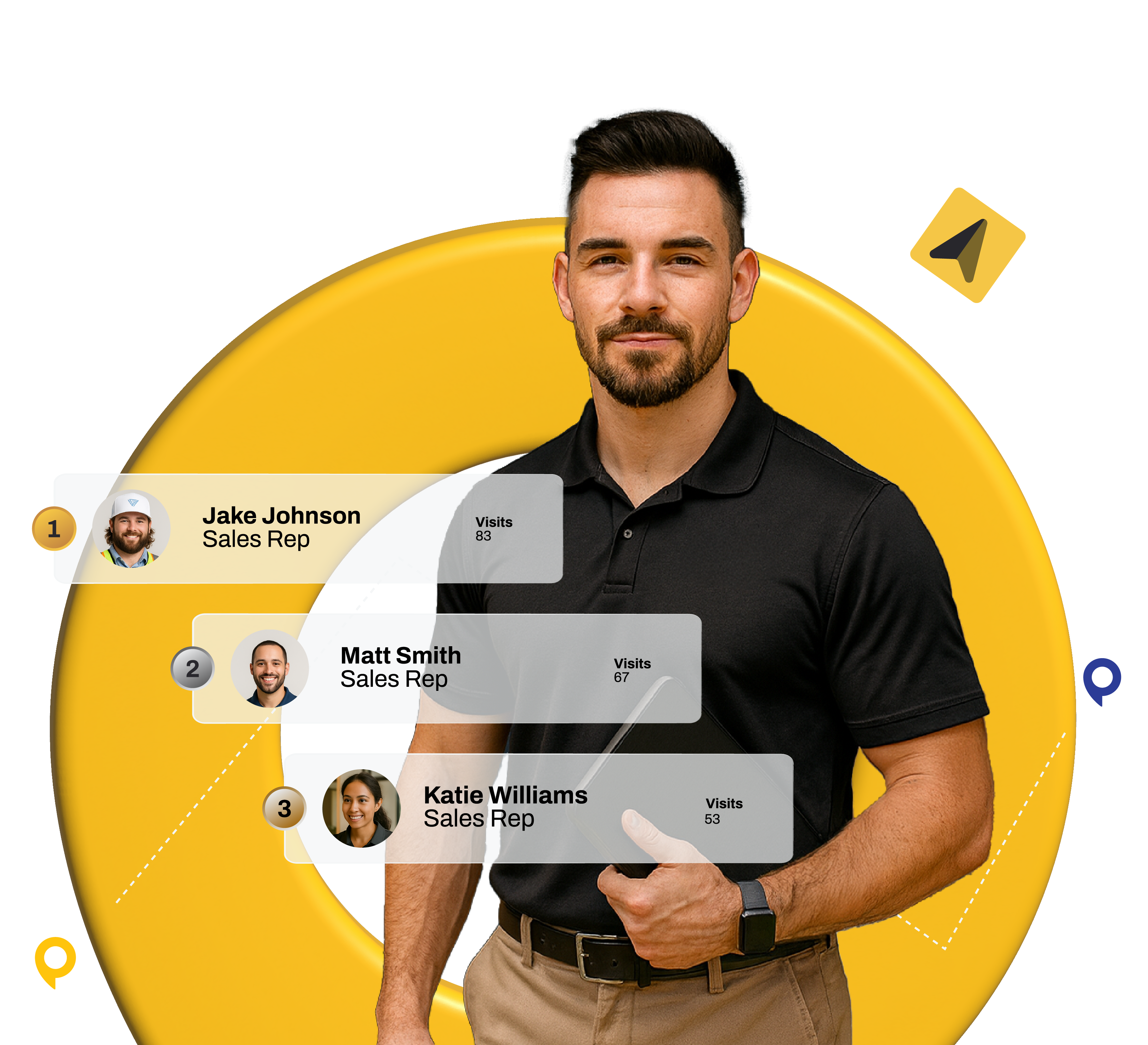The medical field is growing.
The OECD recently said that spending on healthcare across the globe is now 8.8% of GDP. Furthermore, the organization predicts it will outpace the GDP by 2030.
This is great news for those in medtech sales! But to truly capitalize on this growth, you must ensure your team is well trained and equipped with the right tools.
What does this look like? You must experiment with different strategies and software platforms to see what works best for your team. And your reps need to adopt an omnichannel process that uses all of the medical device sales channels at their disposal. If you do these two things, you’ll succeed.
We want to help you with this process. So in this article, we’ll outline the numerous challenges modern medical device sales reps face. Then we’ll show you how to overcome them by sharing 9 tips to increase medical device sales. Let’s dive in!
Modern challenges for medical device sales reps
Let’s start by looking at the five challenges you and your team face. Each threatens to derail your medical device sales process in some way. The five challenges are:
Building customer relationships
You know the stat: it’s five times more expensive to acquire a new customer than it is to retain an existing one. So it makes sense to build strong relationships with your target audience and prioritize retention over various metrics.
Unfortunately, most doctors are incredibly busy. Very few will give your reps the time to pitch products effectively and make sales.
Understanding and explaining complex products
Challenge number two: the actual products you and your team sell.
Medical devices are intricate pieces of technology built to remedy complicated ailments. This fact often puts reps in an incredibly difficult situation.
First, they have to understand the medical conditions their products help cure. Then they have to learn how said products work. Finally, they must convey all of this information to knowledgeable prospects, who will likely ask detailed questions.
And we haven’t even talked about the ever-changing laws, regulations, and standards that plague the medical field. It’s a lot to deal with regularly.
Adapting to an omnichannel sales process
As of August 2021, only 58% of physicians want to meet with medical sales reps face-to-face. That means that a huge portion of your target audience would rather communicate with your reps via phone, email, and/or video conference.
What does this mean for your sales team? You must adopt omnichannel medical device sales strategies to succeed in 2023 and beyond.
If your reps don’t use every channel they can to connect with doctors, they won’t make enough sales. But adjusting to this new reality can be challenging.
Increased competition
Your sales team also faces more competition than ever before.
There are a lot of companies trying to get into medtech sales. To meet and exceed your sales goals, you must devise ways to beat these competitors.
It won’t be easy, though. As mentioned earlier, fewer doctors accept in-person meetings. To build winning relationships—the kind that other reps can’t break apart—you need to use all of the medical device sales channels at your disposal. But again, transitioning to this sales model won’t be a walk in the park.
Expected personalization in the sales process
Finally, modern physicians expect personalized sales pitches.
They want to know about the products and services that solve their pain points. That’s it. Reps that waste their time with anything else will quickly get the boot.
Sadly, not every medical device sales rep is trained to deliver personalized pitches. Many are encouraged to memorize a specific script. Then deliver said scrip, word for word, to potential customers. This method won’t cut it in years to come if you expect to separate yourself from the competition.
The shift to a hybrid sales model
We’ve mentioned it a few times, but we’ll say it again: most doctors are open to remote interaction with medtech sales reps. Many actually prefer it.
To succeed in this field, you and your team must shift to a hybrid sales model.
What does this hybrid approach look like? It will look slightly different for every customer your reps talk to. Why? Because a hybrid approach accounts for the customer’s preferred communication channels, then attempts to use them.
For example, Doctor A might be too busy to meet with reps in-person, but a quick email, which they can read on the weekend, maybe a perfect way to connect.
Doctor B, on the other hand, hates crowded inboxes and is quick to delete messages. Call their office on the phone, however, and you’ll likely talk to a lovely receptionist who will schedule you for an in-person meeting in the next few weeks.
An omnichannel approach is key to a strong medical device sales process in 2023. You need to meet physicians where they want to be met to close deals.
9 ways to increase medical device sales
Now that we’ve covered the challenges that medtech sales reps face and the hybrid shift the industry is currently experiencing let’s talk strategy. Here are 9 tips to help you overcome the challenges above and succeed in medical device sales.
Define your ideal customer profile
First, decide who you’re going to sell medical devices to.
When you know who your ideal customer is, you can target these professionals, boost your productivity levels, and increase your chances of success.
Once you’ve defined who you’ll sell to, create an ideal customer profile (ICP) and give it to your reps. Not familiar with the term? An ICP is a fictional representation of an individual or company that will benefit most from your products.
Your ICP should include geographical and financial information, as well as the top goals and pain points that your ideal customers have/deal with.
Provide specialized product training
Next, teach your reps everything they need to know about the products you sell.
This will probably be a gargantuan task, as most medical devices are complex. Still, it must be done if you want your reps to make sales consistently.
When your reps have a firm grasp of the products you sell, educate them on the ailments said devices were created to cure. It wouldn’t hurt to teach them about competing products and the medical field in general, either.
Focus on the patient benefits
Doctors care for patients. They’re interested in products that help them do this more effectively. Your reps should keep this in mind during their sales pitches.
Whenever your reps talk with physicians, they should lead the conversation with patient benefits. How will the devices your company sells reduce pain? How will they speed up recovery time? These are essential questions to answer.
Using this strategy will make your reps seem more empathetic. It will also cut straight to the physician’s goals: improving the lives of the people they care for.
Highlight the economic benefits too
Patient benefits are essential, so we suggest leading your sales pitches with them. But let’s be real, economic benefits are important, too.
Your reps will close more deals if they can make the products they sell more financially appealing. How can doctors save money by purchasing your products?
We’re not just talking about limited-time deals here. (Though, a discount offer can help move the needle.) We’re talking about long-term economic benefits. Will your product help physicians bring in more patients or something similar?
If so, make sure your sales reps stress these benefits during their presentations, too.
Use a multichannel sales strategy
Different doctors like to engage with medtech sales reps in different ways. By adopting a multichannel sales strategy, you can cater to everyone’s preferences.
Don’t worry, it’s not hard to do. Tools like SPOTIO make multichannel comms a piece of cake. Our platform, for example, will automatically capture contact data for reps. They’ll never have to manually log a visit, call, email, or text data again.
Even better, reps can communicate with prospects via the SPOTIO platform as well. Make calls and automate sales emails and texts from a single interface.
Build and nurture relationships
Your reps won’t make sales if their prospects don’t know and trust them. That’s why the best medical device sales strategies focus on relationship-building.
How do you build solid relationships in this industry? Make sure your reps tell the truth about the products they sell, always keep their promises, and communicate with leads on a regular basis. (Just not too regular. Doctors don’t want daily emails.)
As your reps’ relationships with their prospects grow, they can personalize their outreach efforts more, too. For example, they’ll know which doctors like to shoot the breeze and which like to get right down to business. They can then use this knowledge to craft better experiences for each prospect, leading to more sales.
Set minimum daily sales activities
It doesn’t matter how well-trained your medtech sales reps are. They can’t control who buys from them and who doesn’t. They can control their effort levels, though.
For this reason, set minimum daily sales activities for your sales team.
Reps should be required to make a certain amount of visits/calls and send a certain amount of emails/texts per day. This will hold them accountable.
It will also give you the information to know if poor performance is due to effort or training. You can then adjust your medical device sales process to match.
Automate the sales process
Automation will supercharge your sales team.
Seriously, once you invest in the right tool, you’ll be able to streamline admin work, build automatic outreach campaigns, and a whole lot more. Take advantage!
The question is, which automation platform is best for you? Since you’re in medtech sales and likely manage a field sales team, SPOTIO is a good bet.

With our platform, reps can automate their email and text campaigns. They can automate calls and visit reminders, too, which will prevent leads from falling through the cracks. Oh, and forget about tedious administrative tasks. SPOTIO handles many of them, boosting rep productivity by a whopping 46%.
Track activity and performance metrics
Finally, track individual and team performance. Doing so will help you learn what you’re doing right and where you need to improve. You can then adjust your medical device sales strategies to ensure greater success in the future.
Once again, SPOTIO is an ideal tool for this.
Sales managers can easily see where their field reps are in real-time, view activity metrics, and understand how specific actions lead to certain results. Important KPIs can then be reported on using the My Reports feature.

Enable medical device sales reps for success
Medical sales is changing. Your sales team needs to change with it by adopting a hybrid communication strategy and implementing the tips above. Once you do, your reps will experience more success and your company will beat its competitors.
To help you accomplish these things, consider investing in SPOTIO. Our platform was specifically made for field sales teams. As such, it has the tools your team needs to succeed. Sign up for a free demo of SPOTIO today to see it in action!




